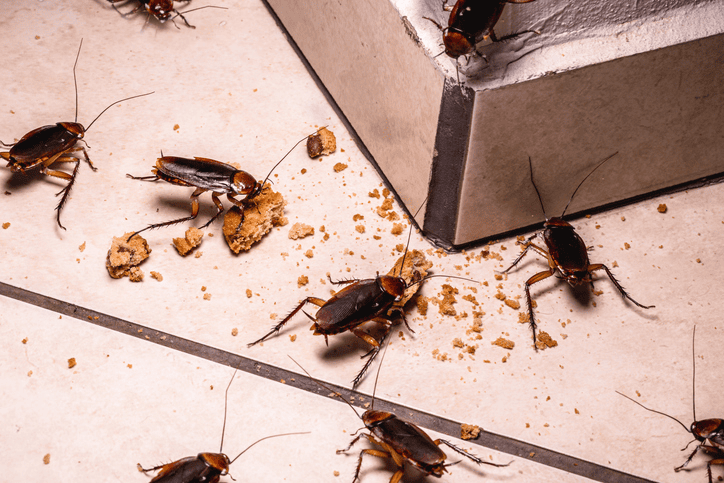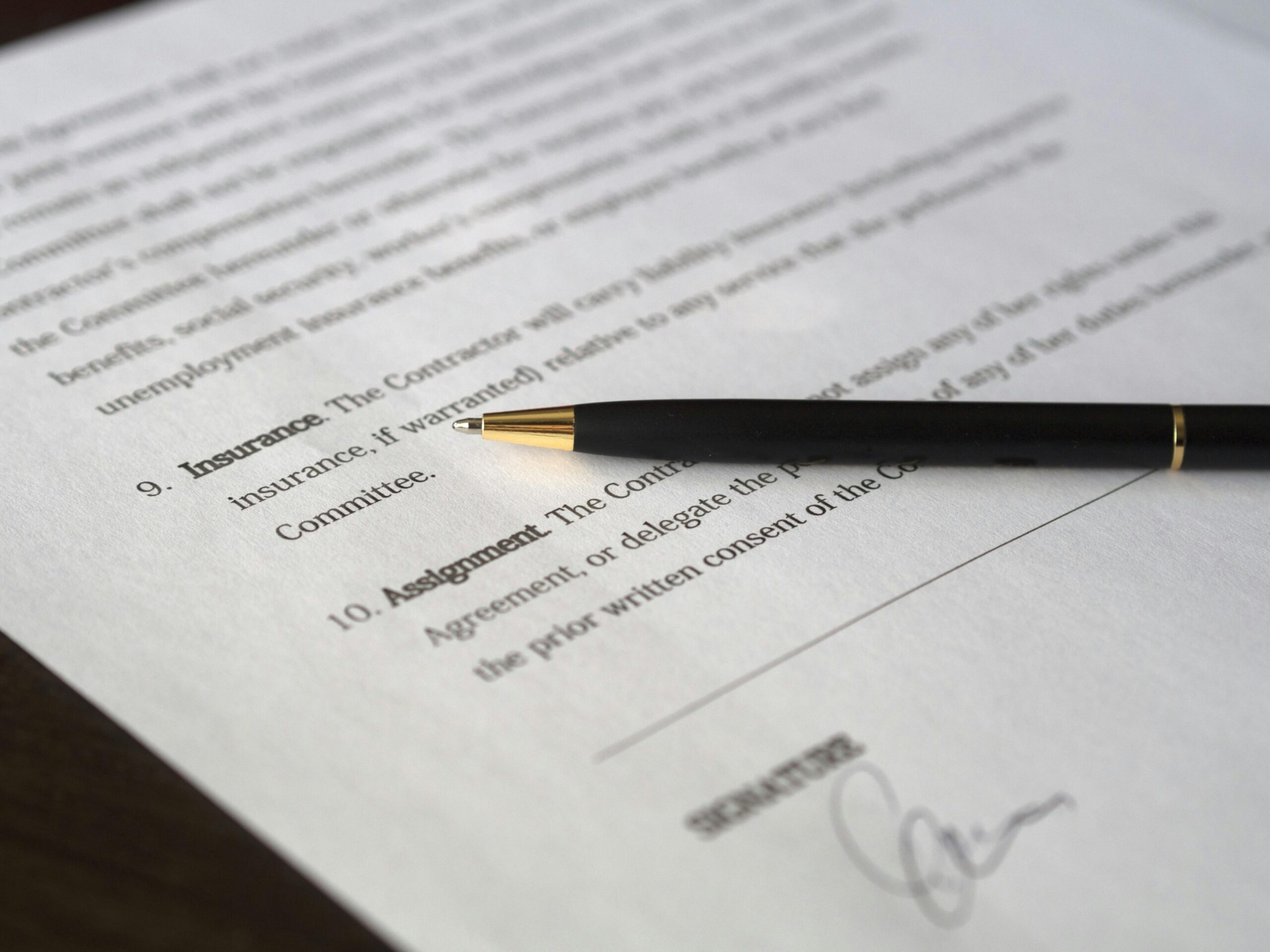
Roach infestations in rental properties are more than just a nuisance; they can pose serious health risks and significantly impact the quality of life for tenants. If you’ve already given your security deposit and moved in to the rental property, you need to know your options.
Landlords have several responsibilities like you as a tenant must pay rent according to the rental agreement. However, is it the same if there’s a pest issue in your building?
If you’re dealing with a roach infestation and wondering whether you can sue your landlord, this comprehensive guide will help you understand your rights, the responsibilities of your landlord, and the steps you can take to address the issue legally.
Understanding Roach Infestation and Its Risks
A roach infestation occurs when there is a large and persistent population of cockroaches in a dwelling. These pests thrive in warm, humid environments and are often found in kitchens, bathrooms, and other areas where food and moisture are available.
Cockroaches are known carriers of various diseases and can trigger allergies and asthma attacks, particularly in children. Their presence can contaminate food and surfaces with harmful pathogens, making it crucial to address infestations promptly.
Health Effects of Roach Infestation
Roaches can cause numerous health issues, including
Allergic reactions:
Roach saliva, droppings, and shed skin can trigger allergies.
Asthma:
Exposure to roach allergens can worsen asthma symptoms.
Bacterial infections:
Roaches can spread bacteria such as E. coli and Salmonella.
Food contamination:
Roaches can contaminate food with their pathogens.
How Do You Know If You Have a Roach Infestation?
Recognizing the signs of a roach infestation is the first step in addressing the problem. Common indicators include:
Visible Roaches:
Seeing roaches during the day often indicates a severe infestation.
Droppings:
Small, dark droppings resembling coffee grounds or black pepper.
Egg Cases:
Oval-shaped egg cases, known as oothecae, can be found in hidden areas.
Musty Odor:
A strong, musty odor can indicate a significant infestation.
Shed Skins:
Roaches shed their skins multiple times as they grow.
Common Reasons for Roach Infestation
Roaches can enter your rental property for several reasons:
- Poor Sanitation: Leftover food, crumbs, and dirty dishes attract roaches.
- Moisture: Leaking pipes, standing water, and high humidity create ideal conditions.
- Entry Points: Cracks, gaps, and holes in walls, doors, and windows provide entry points.
- Clutter: Piles of paper, cardboard, and other materials provide hiding places.
What to Do if You Suspect Roach Infestation in Your Rental
If you suspect a roach infestation, take immediate action:
Document the Infestation:
Take photos and videos of the roaches, droppings, and any damage.
Notify Your Landlord:
Provide written notice to your landlord, detailing the infestation and requesting prompt pest control measures.
Contact Pest Control:
If the landlord fails to act, you might consider hiring a pest control service and keeping receipts for potential reimbursement.
Contact the Local Health Department:
Reporting the issue to the local health department can lead to an inspection and potential enforcement actions.
What Are the Rights of Tenants?
Tenants have the right to a habitable living environment, free from significant health hazards such as a roach infestation.
This right is often backed by an implied warranty of habitability in rental agreements, which requires landlords to maintain rental properties in good repair and comply with health and safety codes.
What Are a Landlord’s Responsibilities Regarding Roach Infestation?
Landlords are typically responsible for ensuring their rental properties are free from infestations. This includes:
- Regular Maintenance: Conducting routine inspections and maintenance to prevent pest problems.
- Prompt Action: Addressing reported infestations quickly and effectively.
- Compliance with Health Codes: Adhering to local health codes and regulations regarding pest control.
Is My Landlord Liable for Roach Infestation?
Determining liability for a roach infestation can depend on several factors:
- Lease Agreement: Review your lease agreement for any provisions related to pest control responsibilities.
- Cause of Infestation: If the infestation is due to the landlord’s neglect (e.g., unrepaired leaks, failure to address structural issues), the landlord is likely liable.
- Tenant Responsibilities: Generally, tenant responsible for maintaining cleanliness and avoiding conditions that attract pests.
Can You Sue Your Landlord for Roach Infestation?
Yes, you can sue your landlord for a roach infestation under certain conditions. If your landlord refuses to take appropriate action after being notified, you may have grounds for a lawsuit based on breach of the implied warranty of habitability or negligence.
How Can You Sue Your Landlord for Roach Infestation?
To sue your landlord, follow these steps:
Gather Evidence:
Collect evidence of the infestation and your landlord’s lack of response. This includes photos, videos, written documentation or written record of communication, and any reports from pest control or health department inspections.
Send a Demand Letter:
Before filing a lawsuit, send a demand letter to your landlord outlining the problem, your previous communications, and your intended legal action if the issue is not resolved.
File a Complaint:
If the landlord still fails to act, file a complaint in small claims court or another appropriate court. Ensure your complaint includes all relevant details and evidence.
Serve Notice:
Use a process server to ensure the landlord receives official notice of the lawsuit.
Attend Court Hearing:
Present your case, including all evidence, in court. Be prepared to explain how the infestation has affected your health and living conditions.
Taking legal action against the landlord is the only option if you want a habitable premises and avoid legal issues along the way. Moreover, the other party or other tenants could try and cover up the cockroach problem.
Therefore, before you think “I will sue my landlord” know that the court isn’t the only time you will need to worry about expenses.
Possible Outcomes and Remedies
If the court finds in your favor, possible outcomes may include:
- Court Order Requiring Repairs: The landlord may be ordered to take specific actions to eliminate the infestation.
- Rent Reduction: You may be awarded a rent reduction for the period the infestation was present.
- Monetary Damages: Compensation for any expenses incurred, such as pest control costs or medical bills due to health issues caused by the infestation.
- Lease Termination: In extreme cases, you may be allowed to terminate your lease without penalty.
How to Get Rid of a Roach Infestation
While legal action is important, addressing the infestation promptly is crucial for your health and well-being. Here are steps to help get rid of roaches:
- Clean Thoroughly: Keep your living space clean and free of food debris. Pay special attention to the kitchen sink, countertops, and dining areas.
- Seal Entry Points: Close off cracks, gaps, and holes in walls, doors, and windows.
- Eliminate Moisture: Fix any leaks and reduce humidity in your entire building.
- Use Baits and Traps: Place roach baits and traps in areas where roaches are commonly seen.
- Hire Pest Control: Professional pest control services can provide effective treatment plans.
How an Attorney Can Help You in a Roach Infestation Case
Dealing with a legal dispute with your landlord over a roach infestation can be daunting and complex. Having an attorney by your side can make a significant difference in the outcome of your case. Here’s how an experienced attorney can assist you in addressing a roach infestation issue in your rental property:
Legal Advice:
An attorney can provide expert advice on your rights as a tenant and the legal responsibilities of your landlord.
Case Evaluation:
They can assess the strength of your case based on the evidence and circumstances of the infestation.
Documentation Assistance:
An attorney can help you gather and organize the necessary documentation, including written notices and evidence of the infestation.
Demand Letter:
They can draft and send a formal demand letter to your landlord, requesting immediate action or compensation.
Negotiation:
An attorney can negotiate with your landlord on your behalf to reach a settlement without going to court.
Filing a Lawsuit:
If needed, they can file a lawsuit against your landlord, ensuring all legal procedures are correctly followed.
Representation in Court:
An attorney can represent you in court, presenting your case and advocating for your rights.
Interpreting Laws:
They can help you understand local and state laws regarding landlord-tenant disputes and pest control responsibilities.
Maximizing Compensation:
An attorney can work to maximize any compensation or remedies you are entitled to, including rent reduction or monetary damages.
Stress Reduction:
Having legal representation can alleviate the stress and complexity of handling a legal dispute on your own.

Claim Your Roach-Free Zone: Partner with BLG for Legal Relief!
Dealing with a roach infestation in your rental property can be stressful and hazardous to your health. Understanding your rights and the responsibilities of your landlord is crucial.
If your landlord fails to address a cockroach infestation, you have legal options, including suing for breach of habitability. By taking the proper steps and seeking legal advice, you can protect your health and well-being, ensuring your living environment is safe and habitable.
For more detailed legal guidance tailored to your specific situation, consider consulting with BLG, our practiced attorneys experienced in tenant rights and landlord-tenant disputes can provide you the support and expertise needed to navigate this challenging issue.
Contact us today for a free consultation.
FAQs
Is a roach infestation considered uninhabitable?
Yes, a roach infestation can be considered uninhabitable because it poses health risks and can significantly affect quality of life.
What is the law on roach infestation?
Laws vary by jurisdiction regarding roach infestations. Typically, landlords are obligated to maintain habitable living conditions, which may include addressing pest infestations like roaches.
Is a roach infestation a reason to break a lease?
A severe roach infestation could potentially constitute grounds to break a lease, especially if the landlord fails to address the issue despite being notified.
Can I withhold rent in California for roaches?
In California, tenants have the right to withhold rent under certain conditions, such as if the landlord fails to provide habitable living conditions, which could include addressing a roach infestation. However, tenants must follow specific legal procedures and may need to demonstrate that the infestation significantly affects habitability.




